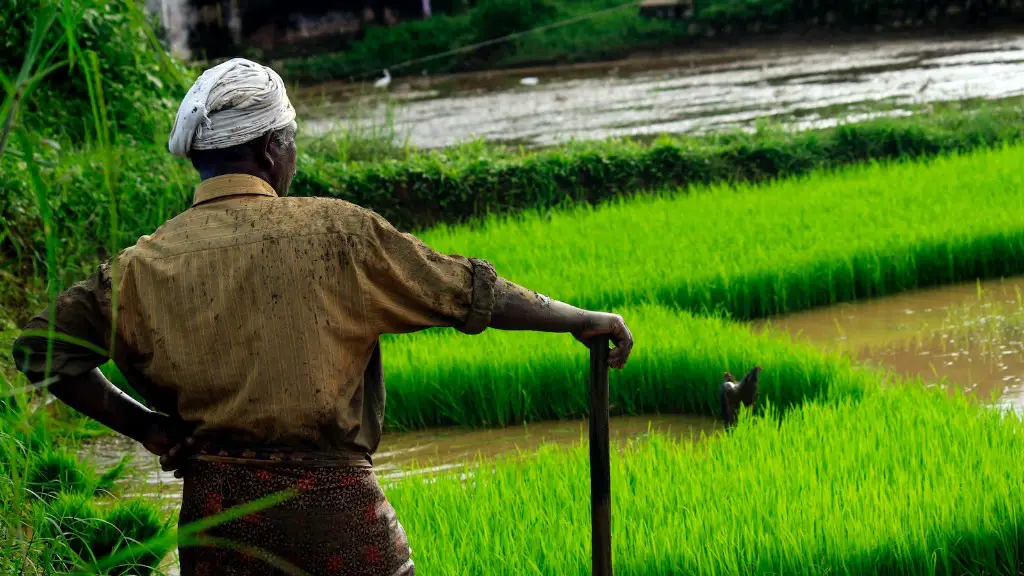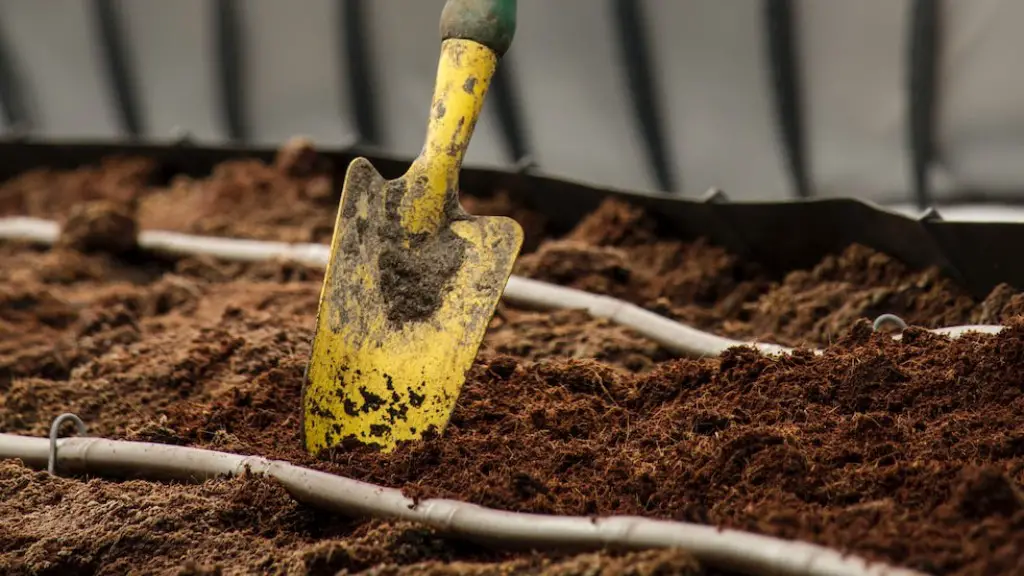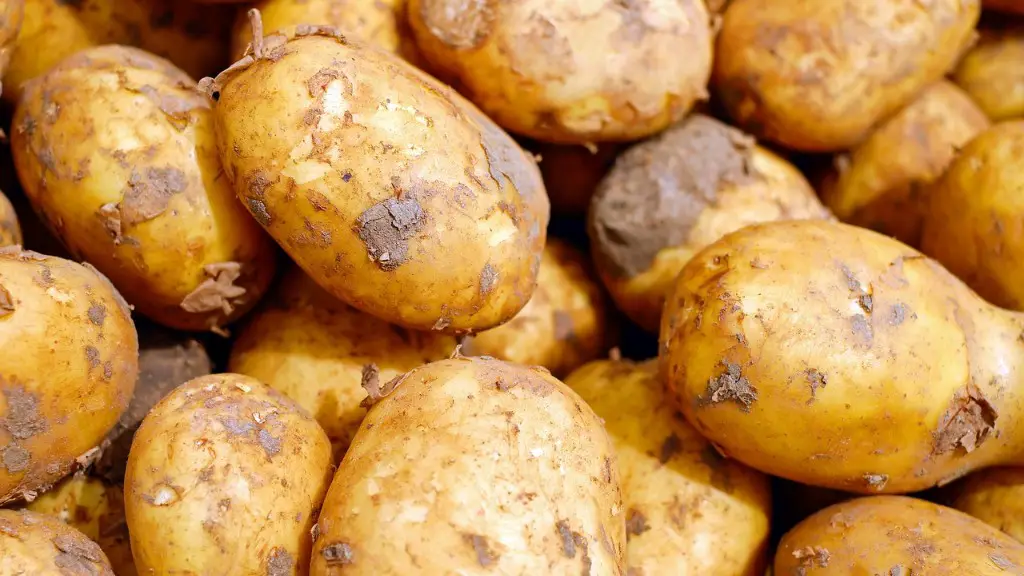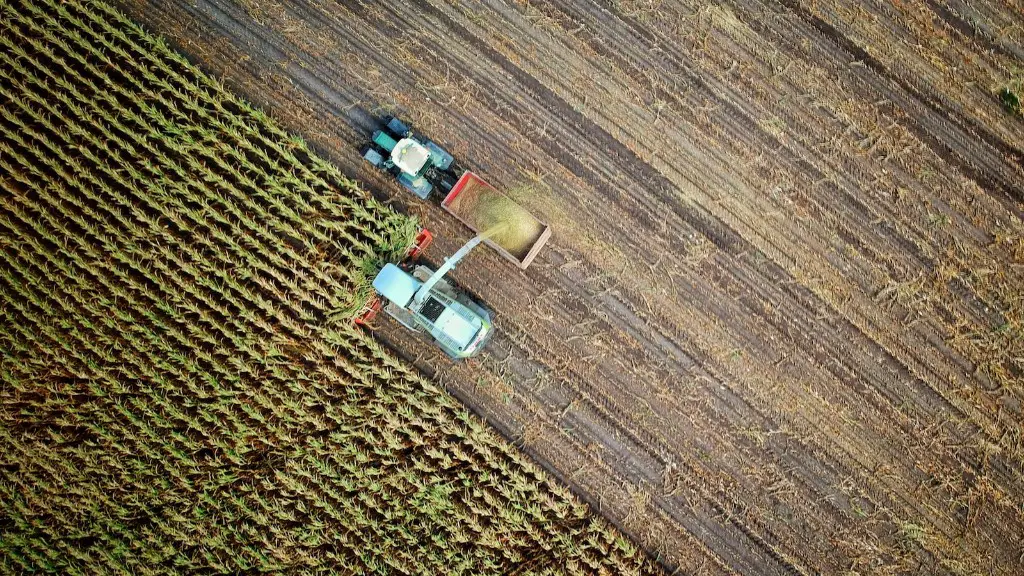Extension agents are agricultural professionals who work with farmers and ranchers to help them improve their operations. They work with producers to identify problems and develop solutions, often using the latest research. Extension agents also work with other professionals, such as agricultural engineers and economists, to deliver services to producers.
An extension agent is a professional who helps farmers and ranchers apply research-based knowledge to their operations.
What do agricultural extension agents do?
An Extension Agent, Agriculture and Natural Resources, is a leadership position responsible for determining, implementing, and evaluating educational programs which are designed to solve social, economic, and environmental problems in agriculture and natural resources. This position requires knowledge in a variety of areas including agriculture, natural resources, and education in order to be successful.
Extension agents play an important role in educating farmers and ranchers about the proper use of machinery and software. They may use a computer program to store information and create presentations. They may also learn how to use different farm equipment so they can show clients the proper methods.
What is the role of Extensionist
The role of extension worker is to bring necessary change in individual and collective behaviour and motivating rural people to adopt new practices. For this, extension worker is required to have knowledge about psychological factors, extension related training and technological knowledge.
Extension methods are the communication techniques extension workers use to reach and engage target groups. The purpose of extension methods is to facilitate farmers’ decisions whether or not to adopt fish farming and, if so, how to go about it. Common extension methods used to engage farmers in discussions about fish farming include field days, workshops, seminars, and one-on-one meetings.
How much does an agricultural extension officer earn?
The Basic Salary for this position is between Kshs 38,270 – Kshs 51,170 per month.
Extension agents play an important role in educating the public about agriculture and related topics. In order to be successful, extension agents need to have excellent public speaking skills and be comfortable working with large groups of people. They must also have a good understanding of agricultural education practices, family and consumer science, and be able to write and build effective presentations.
What are extension examples?
A file extension is the letters after the last period in a file name. They indicate the type of file and the file format. Different file formats require different software to open them. For example, a JPEG image uses the .jpg or .jpeg extension and requires an image viewer like Adobe Photoshop to open it. A Word document uses the .docx extension, or .doc for older versions, and requires Microsoft Word to open it. An MP3 audio file uses the .mp3 extension and requires media player software like iTunes to open it. An Excel spreadsheet uses the .xlsx extension, or .xls for older versions, and requires Microsoft Excel to open it.
An act or instance of extending, lengthening, or enlarging the scope of something can be very beneficial. It can add new dimensions to our understanding of something and can allow us to see it in a new light. The state of being extended, lengthened, or stretched out can also be very beneficial, as it allows us to have a greater sense of understanding or appreciation for something. Similarly, an addition can be very beneficial, as it can add new elements to something and make it more complete.
What are the three types of extension methods
The individual/household approach involves working with farmers one-on-one or in small groups to help them adopt new techniques. The group approach involves bringing farmers together for meetings, field days, demonstrations, and other events. The school approach involves working with schoolchildren to teach them about agriculture and farm life.
The objective of this note is to provide an overview of land preparation, planting, crop management, animal management, post-harvest handling, value addition and marketing.
Land preparation is the first step in any agricultural activity. It includes activities like clearing the land, ploughing, harrowing, etc. The objective of land preparation is to create a conducive environment for the growth of crops.
After land preparation, the next step is planting. This involves putting seeds or seedlings in the prepared land. Planting can be done manually or with the help of machinery.
Crop management involves activities like fertilizer application, irrigation, weeding, pest control, etc. The objective of crop management is to ensure maximum yield and quality of the crop.
Animal management includes activities like feeding, housing, health care, breeding, etc. The objective of animal management is to ensure the health and welfare of animals.
Post-harvest handling includes activities like threshing, winnowing, storage, etc. The objective of post-harvest handling is to preserve the quality of the harvest.
Value addition is the process of adding value to a product. This can be done by processing, packaging, branding, etc. The objective of
What is the highest paying job in agriculture?
There are a variety of high-paying jobs in agriculture, each with its own set of responsibilities. Agricultural engineers design machines and equipment to be used on farms, while agronomists focus on developing new ways to improve crop yields. Agricultural food scientists conduct research to develop new foods and improve existing products, and veterinarians provide medical care for animals. Winemakers are responsible for producing and oversee the quality of wine, and farm managers oversee the day-to-day operations of farms. Agricultural sales representatives sell products and services to farmers and other customers.
Agriculture is a vast field with many different career options. Some of the highest-paying and most demanding career options in agriculture are Agricultural Operations Manager, Food Scientist, Agronomy Sales Manager, Agricultural Engineer, Agricultural Economist, and Agricultural Lawyer. Each of these careers requires a different set of skills and knowledge, but all are essential to the agricultural industry. Agricultural Operations Managers are responsible for overseeing the day-to-day operations of an agricultural business. They must be able to effectively manage staff, finances, and resources. Food Scientists conduct research to improve the quality and safety of food products. They use their knowledge of chemistry, biology, and physics to develop new food processing methods and to improve existing ones. Agronomy Sales Managers are responsible for selling agricultural products and services to farmers and other agribusinesses. They must be knowledgeable about the products they are selling and be able to effectively negotiate with customers. Agricultural Engineers apply their knowledge of engineering principles to solve problems in the agricultural industry. They may design new agricultural machinery or develop new methods of irrigation. Agricultural Economists conduct research and provide analysis on the economic impact of agriculture. They also develop policies and programs to support the agricultural industry. Agricultural Lawyers represent clients in legal matters relating to agriculture.
How many years course is agricultural extension
The Bachelor of Agricultural Technology (B Agric Tech) programme is for a duration of five academic sessions (5 years), but for Direct Entry students, it is four academic sessions (4 years). The requirements for graduation on a semester basis are as follows: (1) A minimum of 140 credit units must be attained. (2) All programmes must be completed within the stipulated maximum period of ten (10) semesters for students admitted through the Unified Tertiary Matriculation Examination (UTME) and eight (8) semesters for students admitted through Direct Entry. (3) Candidates must pass all prescribed courses in their respective programme of study and (4) Candidates must have satisfied the requirements for Field Attachment and internship where applicable.
It is important for extension workers to have a good understanding of adult education principles in order to effectively plan, implement, and evaluate extension programs. In addition to sound technical knowledge, extension workers must be skilled in participatory tools and techniques and have good communication skills.
What are 5 qualities of a good extension worker?
The personal characteristics of an agricultural extensionist are important for the successful transfer of knowledge and leadership skills to farmers. They must be knowledgeable about the subject matter, be emotionally stable, have good work skills, and be smart.
Extension agents are employed by the county government to work with farmers to increase crop yields, prevent erosion, eliminate blights or pests, and the like. They work with farmers to help them improve their farming practices and make their farms more productive and sustainable.
Final Words
An extension agent is a professional who works with farmers and other members of the agricultural community to provide them with information and resources that can help them improve their operations. Extension agents typically have a background in agriculture and are familiar with the challenges that farmers face. They work to identify needs and then develop programs and materials that can address those needs. Extension agents also serve as a link between the agricultural community and the resources that are available from government agencies and universities.
An Extension Agent is a professional who provides information and education to farmers, ranchers, and other agricultural professionals to help them improve their operations. Extension Agents are employed by state governments, and typically work for either the state agriculture department or the Cooperative Extension Service.





